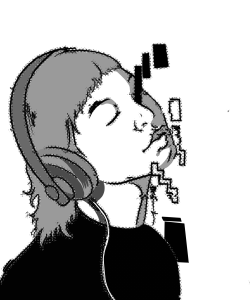PIONEER BOARD EDITORIAL
Each day, 18,000 children die of hunger and/or malnutrition; there are over 23 million refugees and internally displaced persons worldwide; and billions of people live each day with no guarantee of freedom of speech.
In the meantime, American colleges and universities are busy chattering about whether the drinking age should be lowered to 18.
Around 130 college presidents have signed onto the petition to lower the drinking age. While this is but a mere drop in the bucket of the approximately 3,500 college presidents nation-wide the petition has created quite a stir, eliciting attention from major and minor news outlets and colleges, students and parents.
Citing the college’s practice of political neutrality, George Bridges refrained from signing the petition.
Bridges’ choice was a wise one considering that there is no evidence to support the claims made by proponents of a lower drinking age. Additionally, it would have been essentially impossible to get the consensus of the trustees and administrators to support such an amendment.
The practice of total neutrality, however, denies the power we possess as an institution and leaves many important things unsaid.
As with all non-profits, Whitman, as an institution, is prohibited from endorsing partisan political statements. And it makes sense.
Non-profit designation is why churches can’t inform their congregations that voting for a particular candidate is the will of God. It’s why highly controversial groups like pro or anti-abortion groups can’t be non-profits. It’s why you can’t donate to the Democratic or Republican party and write it off on your taxes (at least not without pulling a few extra strings).
In terms of political issues, it makes sense for Whitman to remain neutral. It would, after all, contradict the school’s very mission of encouraging students to “develop capacities to analyze, interpret, criticize, communicate, and engage” if the school were tell us who to vote for and what stores to shop at.
And Whitman does an excellent job of this. The school pours millions of dollars into students so that we can go protest the treatment of workers in meatpacking plants or improve water quality in India: or even put up Ron Paul signs and make Barack Obama buttons.
Yet the precedent of neutrality has been so strong that it has kept Whitman from taking a stand on issues of universal human rights.
When faced with the apartheid in South Africa, Whitman chose not to take a stance on the fundamental injustice of institutional racial discrimination.
Over 150 colleges and universities chose to divest their financial assets from South Africa in protest to the fundamental injustice of apartheid. Despite intense student and faculty pressure, Whitman, citing the policy of political neutrality and the best interests of the students, chose not to divest.
The colleges that did choose to take a stand saw the power of their actions. Nelson Mandela noted that the efforts of colleges to take a stand against apartheid and divest their assets from South Africa helped to bring down apartheid.
Colleges have long been viewed as engines of positive, progressive change. While much of this weight rests on the backs of students and faculty, the institutions themselves would do well to explore the virtues they encourage in their students.
Indeed, it is inherent in the critical nature of a liberal arts education that we should know how to draw the line between partisan politics and an assault on human rights.
We cannot maintain neutrality as millions are killed, raped, abducted and displaced in the Darfur region of Sudan. We cannot pretend to be too busy fiddling with our books to say something when a hurricane ravages a nation and the government barely puts a Band-Aid on a gaping wound. We cannot wave our non-profit flag as we mumble “no comment” while HIV/AIDS ravages the entire continent of Africa.
As a college in control of an approximately $400 million endowment, not to mention the minds and ears of thousands, we have a powerful voice. Yet silence in restraint and silence in apathy both render our voice unheard.
We cannot afford to cling so tightly to the safety of neutrality that we neglect to use our strength to offer a helping voice to those rendered speechless. For years of restraint have not rendered us silent but will make our voice all the louder when we do speak out.
Editor’s note: This opinion piece reflects the view of The Pioneer and not necessarily the views of each individual associated with the newspaper. The Pioneer welcomes Letters to the Editor or contradicting opinion pieces.







